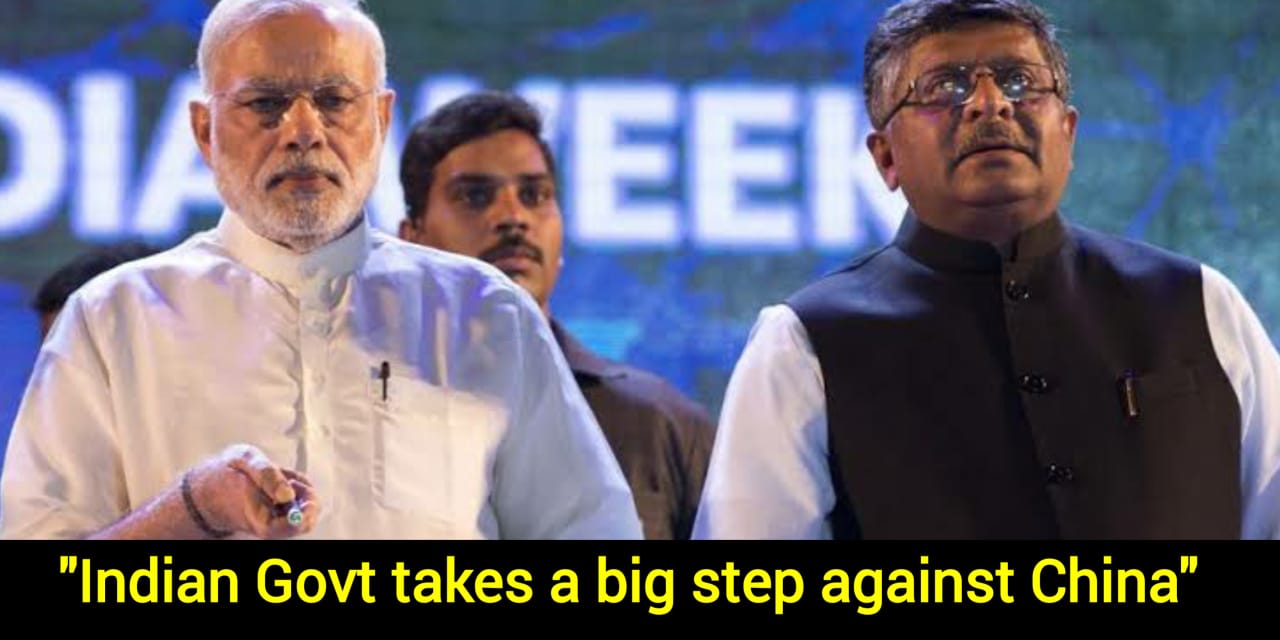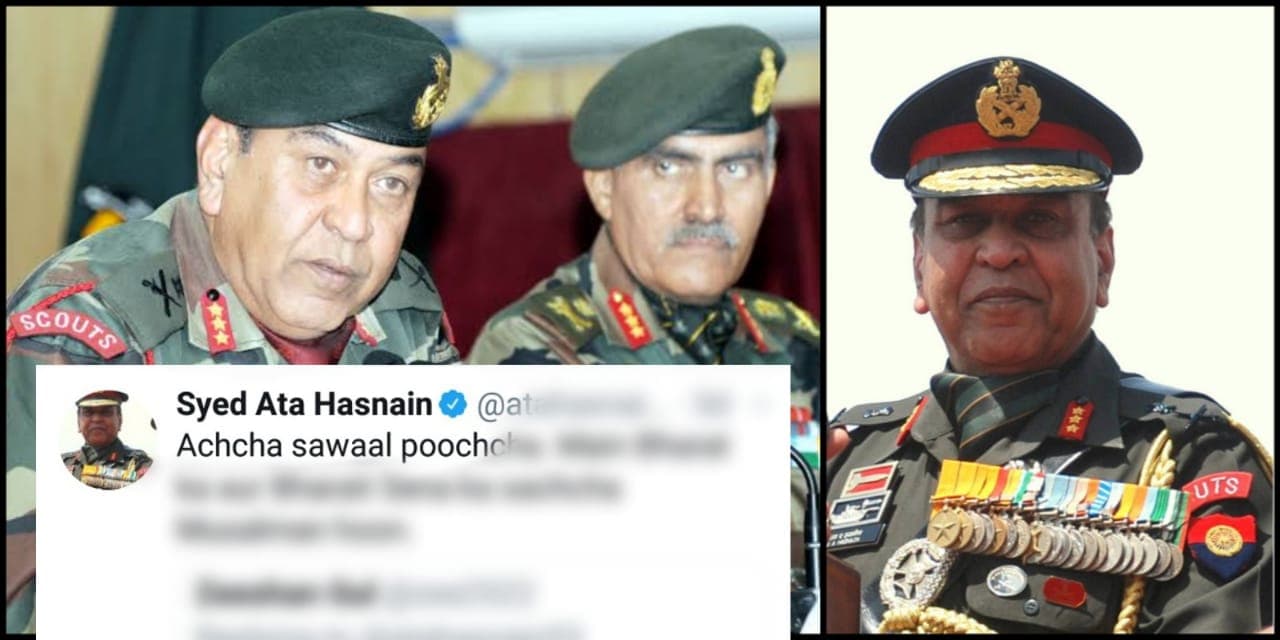No products in the cart.
5 Success Stories of IAS officers that can inspire you to the core | The Youth Special
Transition in every individual’s life is obvious if one gives absolutely everything to fulfil the goal. Ask a successful person about how they did it and they would simply say there are no shortcuts to real success.
One must realise that only hard work, great diligence as well as commitment is required to touch the pinnacle of success. Above all, believing in oneself is also one of the great ways to outsmart challenges.
IAS officers are making the headlines for all the right reasons. The ultimate aim of a civil servant is to make a huge difference in people’s lives. Time and time again, they have proved that they are worth the weight in gold. Once they decide to bring a change, there is literally nothing who can stop them.
Father drives Auto rickshaw, son tops India’s toughest exam UPSC and becomes IAS officer
Ansar Ahmad has done something special which others can only dream of. Despite facing the difficulties in his career, he didn’t let the negativity get the better of him as he managed to tackle every snippet of move to clear one of the toughest UPSC civil service exams at the age of 21.
He was so obsessed with his academics as he always desired to have a bright career. Ansar always knew what to do to steer the family into the comfort zone. Going from strength to strength, he fought against all the odds and gave absolutely everything to crack the exam when lakhs of people attended.
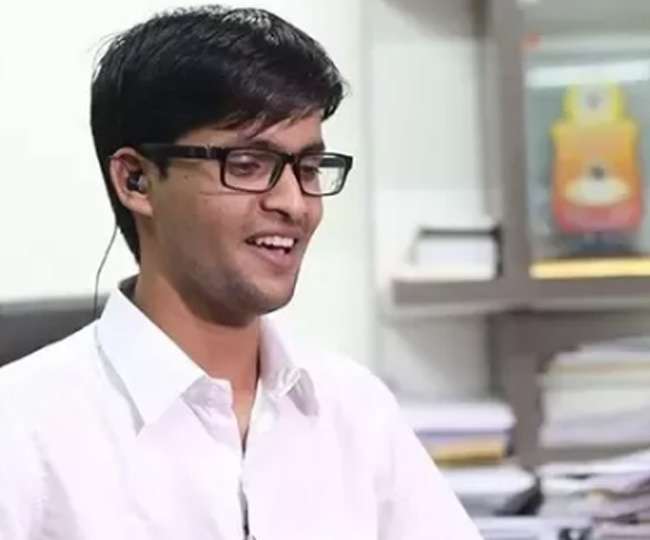
He was one among the hundreds to clear the test in his first attempt in 2015, in what turned out to be an absolute peach of an achievement. He essayed a flamboyant AIR 361 at 21 years, beating Roman Saini who was 22 when he became an IAS officer. He carved out a reputation for himself as a bright student and set a perfect example for others.
Family background:
Yonus Shaikh Ahmad, father of Ansar is an autorickshaw driver from Jalna’s Shedgaon village in the Marathwada region of Maharashtra. Ansar’s mother worked in fields. His younger brother, Anees dropped out of school in class VII and worked in a garage in a bid to support the family and help his brother prepare for the IAS exam.
Ansar Ahmad has his say:
“I was marginalized by three different categories. I am from a backward undeveloped region, I hail from a poor economic background and I belong to a minority community. I will tackle all these issues as an administrator since I have witnessed these issues at close quarters,” Shaikh added.
“My brother, a garage hand, supported me throughout, without which this would have been impossible to achieve. I am indebted to him,” Shaikh said as his mother and other relatives hugged him.
“Education has never been a watchword in my family. My father, a rickshaw driver, has three wives. My mother is the second wife. My younger brother dropped out of school and my two sisters were married off at an early age. When I told them that I had cleared the UPSC and in all likelihood will be an IAS officer, they were stunned shocked,” said Ansar who got IAS posting in West Bengal cadre.
“I was marginalized by three different categories. I am from a backward undeveloped region, I hail from a poor economic background and I belong to a minority community. I will tackle all these issues as an administrator since I have witnessed these issues at close quarters.”
“There is no alternative to hard work. During my struggle, my friends helped me a lot mentally and financially and even my coaching academy waived a portion of fees due to my poor financial condition,” he concluded.
Class 12 dropout becomes IAS officer, this is Elambahavath’s journey to success
“Always aim high and be truthful to your conscience. There is no substitute for hard work. Never give up your dreams,” K Elambahavath said. How can you break the spirit of a man who has worked hard tooth and nail to get where he is? Let’s get into the story now.
Almost everyone is quite familiar with the work process in government offices in India. Right from pillar to post, being referred to a new department on each and every visit and taking countless trips to the office are one of the main reasons behind the discontentment.
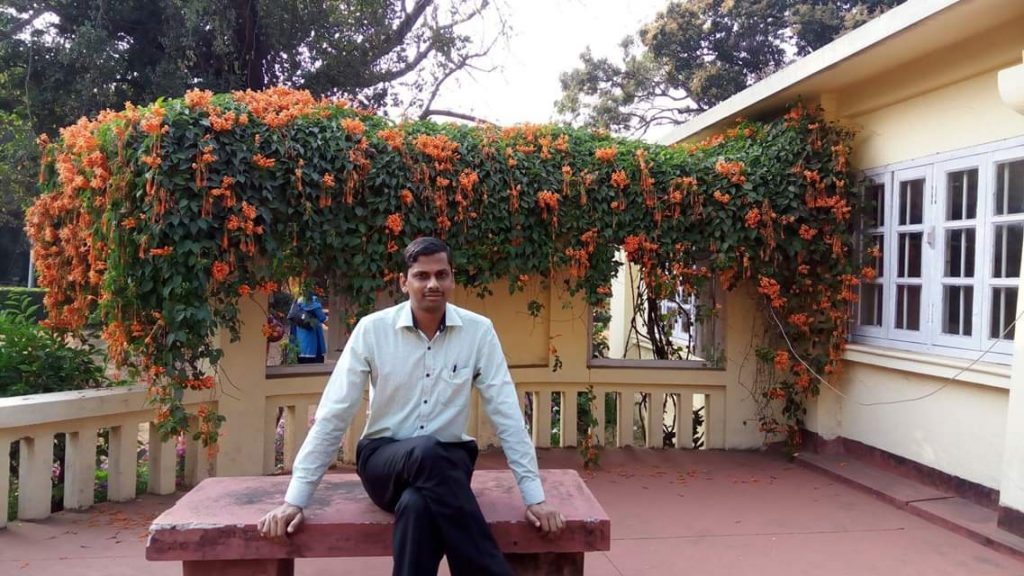
In the year 1997, K Elambahavath had also faced one similar kind of situation where he continued his trips for around nine years.
He was feeling dejected and very much concerned about wanting to transform the poor state of affairs in government offices, Elambahavath defied all odds and became an Indian Administrative (IAS) Officer in 2016.
Elambahavath announced his arrival to the Earth in 1982 in Cholagangudikkadu, a small village located in the Thanjavur district of Tamil Nadu. His life wasn’t that easy. He had a very normal childhood with his father working as a Village Administrative Officer, his mother being a farmer and social activist.
He made sure that his childhood days were spent in the best way as he was in farms helping his mother out, going to school and playing with his buddies and three elder sisters.
With his father being the first to graduate in the village, Elambahavath’s family gave education as the first priority.
Naturally, he preferred academics to farming.
Unfortunately, a tragedy struck in his life in 1997 when Elambahavath lost his father and then the class-12 student had to drop out of school due to financial issues.
Then he did not even have any clue that he would be able to earn a graduate degree, let alone take Civil Services.
“My schoolmates and people around me were busy chasing Medicine and Engineering professions. Meanwhile, I was clueless about my future. I had no idea about UPSC or its recruitment agency until I turned 24,” Elambahavath tells The Better India (TBI).
After learning that agriculture won’t fetch him sufficient money to meet the needs of the family, Elambahavath then applied for the Junior Assistant (LDC) post under compassionate grounds provided to the family members of the deceased government servant.
One part of the hectic application process involved submitting educational certificates to the District Collector’s office. In addition to that, there were 20 types of documents that Elambahavath had to deposit and despite submitting whatever he had, he still did not get the job.
“The district collector office denied my posting by citing administrative reasons. More than 15 such candidates were waiting for the appointment. But, a few got appointed bypassing the waiting list. I couldn’t understand how such things would happen,” says the 37-year-old.
Elambahavath including other candidates petitioned their respective grievances to the District Collector, Revenue Secretary, Commissioner and even the Chief Minister.
“My typical day would begin by working in the fields till the afternoon, going to government offices, pleading for a job and then finally returning home with no concrete results. I fought this battle for nine years and yet nothing happened,” he adds.
After he got really tired with all his efforts, he decided to take an alternate route that did not demand anyone’s pleading or help.
Elambahavath took a vow to return to the district collector’s office but as a proud officer. He holds IAS officers in high esteem, and thus decided to become one himself, “Many aspirants came to civil services by inspiration. I came here by frustration at the system.”
“The bureaucratic apathy did not allow many senior IAS officers to hear our voices, and this was unfortunate. I wanted to change the situation for good, and that is how my journey to become a Civil Servant began,” he says.
Since he dropped out of school in the 12th standard, he preferred long-distance education and then did his Bachelors in History from Madras University. He stood on his own leg and there was no access to coaching centres.
“My village or nearby towns did not have any guidance facility for civil services. I studied in the public library that has a separate section for civil services. We were a group of 10 civil services aspirants in Pattukkottai. Our retired Headmaster Mr. AT Panner Selvam and many well-wishers were helpful,” says Elambahavath.
Thankfully, the library and support of people helped him get through the examination for free civil services coaching by Government of Tamil Nadu.
After formal guidance, Elambahavath made his way to the interview stage of the UPSC for 3 consecutive times but failed in all. However, he did manage to clear several Tamil Nadu Public Service Commission Examinations (TNPSCE)
Though Elambahavath’s dream of getting a government job was fulfilled, he was not that happier. He said, “I joined the state government Group 1 service which includes Assistant Director (Panchayat), DSP etc. I continued preparing for the UPSC while working.”
With much-needed support and guidance from family and senior government officials, Elambahavath was able to manage his work and studies. Well, his journey as a Civil Aspirant was not that easy as he had to appear for five Mains and three interview rounds and he failed to clear any of them. The man with never give up attitude worked harder but sadly, all his attempts went in vain.
“I joined the state civil services. In 2014, the Central Government provided two more attempts for those who had been adversely affected by the Civil Services Aptitude Test. I grabbed the opportunity and appeared again,” he says.
His grit, determination, self-confidence and perseverance got him into the Indian Revenue Services (IRS), and he made his one last attempt in 2015 for IAS.
He then secured All India Rank 117 and got into Indian Administrative Service in state cadre.
“I was always confident about my goal, and I entered into this profession at a time when failure and success were on the same line. Thus my failed attempts did not discourage me at any point,” he added.
On entering the Lal Bahadur Shastri National Academy of Administration (LBSNAA) which is a research and training institute for public policy and public administration, he said: “When I entered LBSNAA, I thought that it would be just another training centre. But I realised the impeccable professionalism on the first day itself. . . . It nurtured me in every aspect of life. Since I did not go to any college, I can claim LBSNAA as my only academic institution,” he told Humans of LBSNAA.
On taking charge as a Sub Collector in Ranipet’s Vellore District, he said: “I could perceive the grief of the people whose voices are not heard. I always try to understand the issues from people’s perspective who are waiting in the corridors of government offices. I have oriented my staff towards the same methodology,” Elambahavath says.
His biggest lesson that he learnt as a government official, he says, “We need to stop judging government jobs as slow and apathetic. It deserves respect considering it does the sovereign duty of a welfare state and works for the oppressed people. As for me, my job gives me immense satisfaction.”
Meet Pranjal Patil- India’s first visually challenged woman IAS officer, let’s praise her
“Don’t give up. Keep trying.” This is Pranjal Patil’s success mantra.
“You will get that one break that you require”, says Pranjal Patil. She was earlier rejected by IRAS, but today, she is a sub-collector!
Her journey was more tough and challenging as she has become India’s first visually-challenged woman IAS officer.
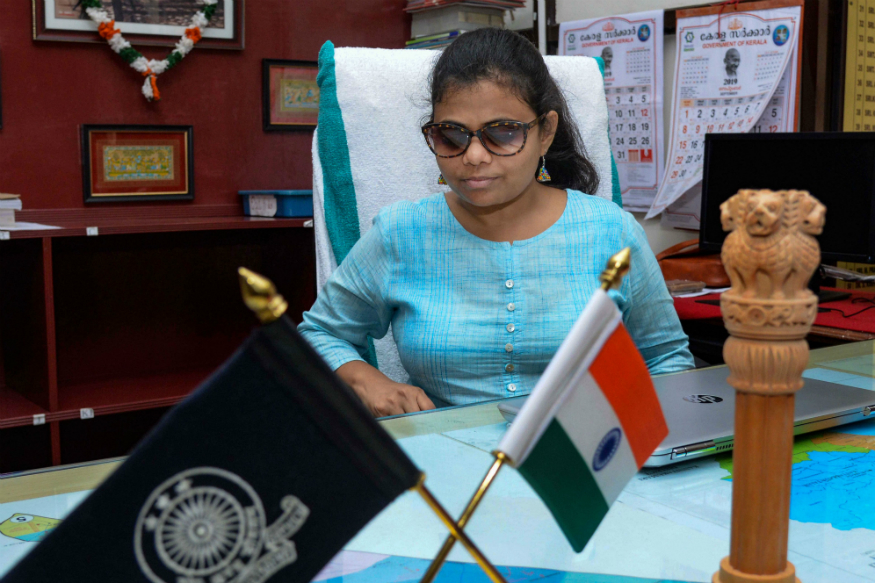
“Never be defeated, Never give up,” she said as she took charge as the Sub Collector of Thiruvananthapuram, the capital of Kerala, on October 14.
Patil was recruited as Ernakulam Assistant Collector during her training period.
A massive reception was arranged to welcome the 30-year old Kerala cadre officer as she took over from former collector B Gopalakrishnan.
“I am feeling extremely glad and proud after taking this charge. As I start working, I will be able to know more about the district and would plan better for it. I expect support and cooperation from my fellow members and people of Trivandrum,” Patil said while speaking to the media.
She lost her vision in one eye at the age of six when a student in her class stabbed a pencil into it. In the next year, she lost her vision completely.
Railway Services department didn’t offer her a job because of the reason that she was completely blind. The Railways who have their own set of rules claimed that someone who is visually challenged is ineligible for the job.
However, the disability didn’t stop her dreaming big in life. Her attitude was so strong that she never came up with excuses as she still prepared with grit and determination to clear IAS exam. She did her graduation in political science with a master’s in International relations from Jawaharlal Nehru University.
Patil was ranked 733 in civil services in her first attempt in 2016 and she made giant strides in her result as she was ranked 124 next year.
She developed a habit of reading through her fingers to grasp knowledge. The fact that she came across a software that would help her to listen word by word and make things simpler. From what we can come to a point is that she had the patience when she went about her business. Ever since her childhood, she was very specific about choosing her career.
When asked about how she cracked the exam, She told about how she got into the scheme of preparations. Having developed the art of reading, she said she loves to read and the syllabus excites her to the core. She stood by her own leg to accomplish the goal.
Ambitious people never give up on dreams, come what may. In a competitive world, where people sweat it out to give absolutely everything to crack the exam, only very few have touched the pinnacle of success and Pranjal Patil is an inspiration to all. The Youth Salutes Pranjal Patil and wishes good luck for her future endeavours!
From selling bangles to becoming an IAS officer- here’s Ramesh Gholap’s journey to success
There is nothing under the sun that one cannot touch the pinnacle of success with individual talent. At any time, life can change and all one can do is to set goals high and to march towards it each day of life. Ramesh Gholap faced a lot of ups and downs in life. But that’s didn’t stop him from becoming an IAS. The story of Ramesh Gholap will surely inspire you in many ways and let’s go through his journey.

Ramesh Gholap’s father is an alcohol addict. He runs a bicycle repair shop to feed the family. Being the sole breadwinner, his alcohol problem afflicted the family’s financial condition as much as it did his health. It was when Ramesh’s mother Vimal started selling bangles to support the family.
Ramesh’s left leg was affected by polio but he along with his brother, helped his mother sell bangles to support the family. Polio didn’t stop him from becoming IAS.
Ramesh is from a remote village named Mahagaon in Barshi Taluka, Solapur district of Maharashtra. There was only one primary school and Ramesh went to stay with his uncle in Barshi for education.
When he was in Class 12, he received shocking news of his father’s demise. At the time, he was not able to afford even the Rs 2 a disabled-quota ticket cost, and thanks to his neighbours who provided timely assistance to Mahesh as he managed to reach home to perform father’s last rites.
Despite thriving in academics in school days, Ramesh did a Diploma in Education as it was the only course he could afford. He didn’t stop there as he also pursued a graduate degree in arts from an open university and in 2009, he became a teacher.
Seeking inspiration from a tehsildar he had visited during his college times, Ramesh wanted to be one too. After his mother borrowed some money from a self-help group, Ramesh quit his job and went to Pune for six months to prepare for UPSC.
He told The Better India, “The first teacher who met me was Mr Atul Lande. I requested him to write down the answers to a few of my questions, like what is UPSC, can it be taken in Marathi, am I eligible for it, etc. And he told me there was nothing to stop me from taking the UPSC. It is only because of that one statement that I finally did it.”
Ramesh tried for UPSC exam in 2010 but he did not qualify then. As per a report by The Logical Indian, Ramesh cracked State Institute of Administrative Careers (SIAC) exam, which offered him a hostel and a scholarship.
To meet his daily expenses, he painted posters besides focusing on studies. Finally, he cracked the UPSC examination with an AIR of 287. After a few months, his MPSC results were also out where he topped with the highest-ever marks of 1,244 out of 1,800.
At present, Ramesh plies his trade as joint secretary in Jharkhand’s energy department. “Whenever I cancel the licence of a PDS shop owner who has been black-marketing kerosene, I remember my days when I had to turn off the lantern for lack of kerosene. Whenever I help a widow, I remember my mother begging for a house or for her pension.
Whenever I inspect a government hospital, I remember my father’s words when he had left drinking and just wanted better treatment. He would ask me to become a big man and take him to a private hospital. Whenever I help a poor child, I remember myself, I remember Ramu,” he told in an interview with The Better India.
The journey of IAS officer Asker Ali- who grew up in poverty to crack IAS exams
In the competitive world, getting placed in a reputed organization is deemed to be the toughest challenge. Nobody can deny that! Despite such major challenges, S Asker Ali from Meitei-Pangal community of Manipur came through with flying colours as he became the first proud IAS officer from his community.
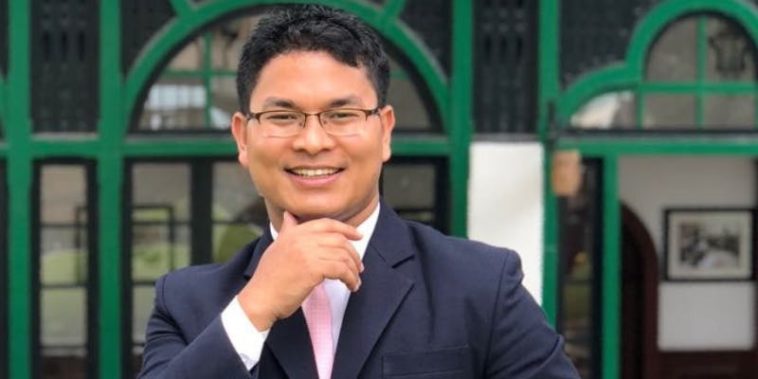
Let’s take a moment to appreciate his success. Asker Ali’s success didn’t come that easy who comes from the marginalised community. Digging deep, Meitei-Pangal is a minority community with a powerful history that dates back to 400 years.
Asker’s family empathises with evergreen field agriculture and he is the second of five siblings. He graduated from Delhi University with specialization in Physics. Post his graduation, he enrolled at a coaching institute. He said that with limited opportunities, people from his community didn’t shine much. In addition to that, Asker Ali faced financial difficulties. But he didn’t allow personal problems come across his dreams. Despite difficulties, he cracked the UPSC examination in 2015 by securing 167 rank, according to The Better India.
In a conversation with Humans of Lbsnaa, he said he learnt the value of hard work when he and his parents worked in the fields. “During school, I used to work with my parents in the fields. That ingrained in me the value of hard work.” The proud IAS topper Anudeep Durishetty credits his success to Google and Youtube which helped him gain broad spectrum of knowledge on subjects.
He further added,”Today, I am the first direct IAS – that’s a feat that is mine forever, something I will always be proud of. I also believe its special because it may be a small success, but it will be an example for others to follow in our community. How education can be a game-changer will be seen by the community, and that’s a step towards a better future.
He said, “I belong to the Meitei-Pangal community, which constitutes around eight percent of the state’s population. Its presence in the higher rungs of administration is almost nil. Progression through education has never been a priority. It doesn’t matter where you come from and who you have been – as an IAS, you are an Indian and you must work for the country.”





